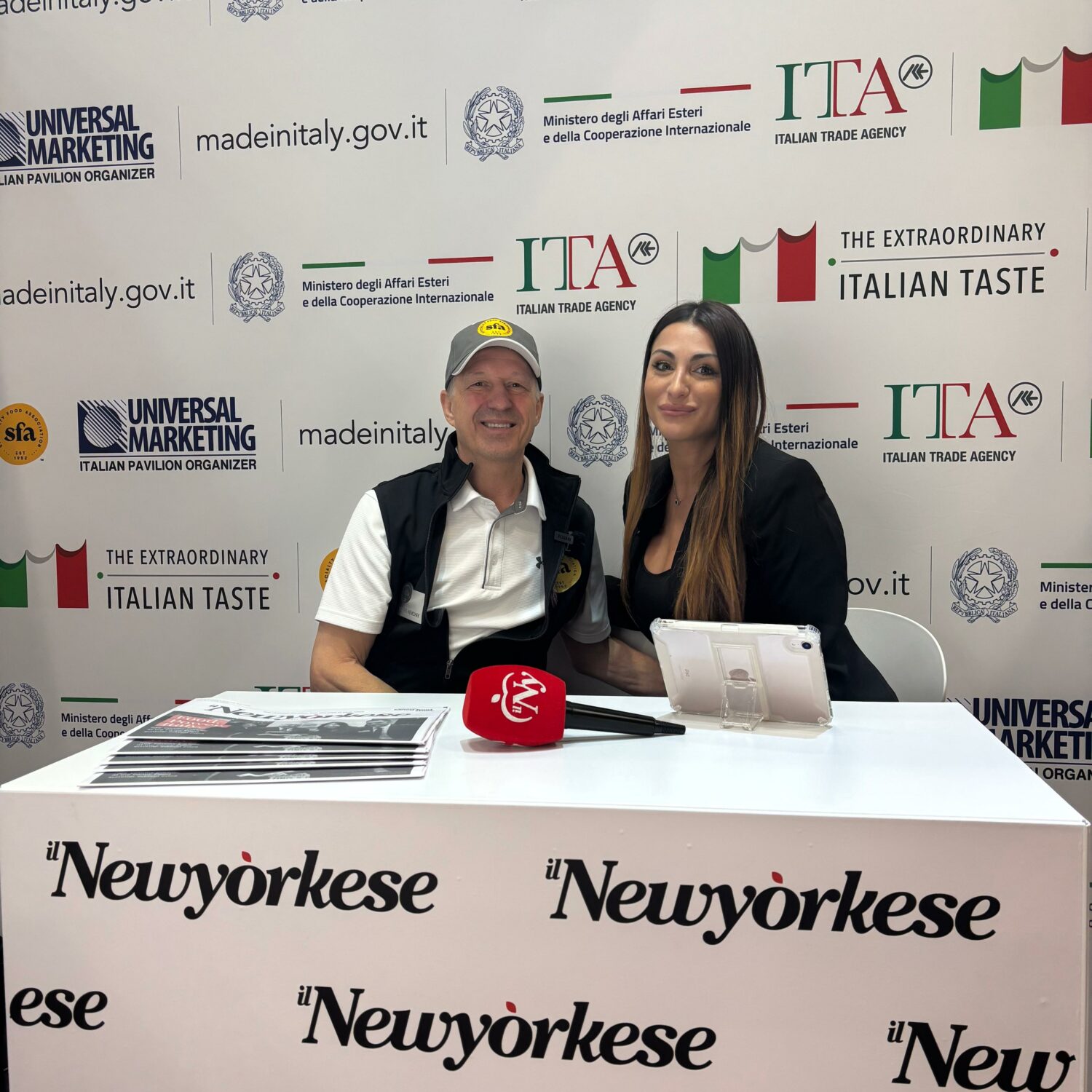Here at our interview space at the Summer Fancy Food Show in New York, in the beating heart of the Italy Pavilion, we had the pleasure of meeting one of the key figures behind the organization of one of the world’s most important food industry events. Chris Nemchek is the vice president of trade shows at the Specialty Food Association, the body that has been promoting and supporting the niche food industry in the United States and around the world for 70 years. We spoke with him about the evolution of the market, the importance of sustainability, and the increasingly crucial role that events like Fancy Food play in global economic and cultural diplomacy.
What does it mean today to organize an event like the Fancy Food Show?
Organizing a fair like this, which has 75 years of history behind it, is a great responsibility. We could do the same fair every year, but doing so would quickly put us out of step with the times. Our job is to keep it alive, fresh, relevant. We are constantly looking for new ways to bring buyers and sellers of niche food products together: educationally, in face-to-face business settings, or through innovative experiences.
A key element is young companies participating for the first time. We are a reference point for them: we accompany them, train them, help them grow. That’s where innovation comes from. Our role is precisely to transform small businesses into companies ready to compete in the international market.
In a landscape where terms like “artisanal,” “authentic,” and “sustainable” are often abused, what role does a fair like yours play in educating and guiding the industry?
A decisive role, and one that goes far beyond communication. First, we take our share of direct responsibility. The Javits Center, where we are now located, is one of the largest convention centers in the United States-an event like this inevitably generates an environmental impact. But we are committed to minimizing it with concrete sustainable practices. New York City is hosting us, and we want to live up to that welcome ecologically as well.
As for our exhibitors and visitors, however, our goal is to educate, raise awareness, and anticipate trends. We talk about packaging, ingredients, sustainable materials, but also about conscious supply chains and ethical approaches to production. And we don’t do it alone: we surround ourselves with industry experts, invite them to join our network, and with them we infuse expertise into our more than 4,000 members. Educating is one of the pillars of our mission.
With an increasing number of participants from around the world, what role do you think Fancy Food can play in food diplomacy and international relations?
Now more than ever, our fair is a strategic platform for trade and cultural diplomacy. In an unstable economic environment, with wars, tensions, tariffs and rapid changes in global markets, not all countries feel ready to invest. Some are waiting. But others boldly seize the opportunity and come here, to the United States, right to the Fancy Food Show.
We are proud to be the main gateway to the U.S. market for the food industry. This year we hosted more than 55 countries. No other food fair in the United States can boast such an international presence. And for many, attending here means getting their first foot in a market as complex but extremely lucrative as the U.S. market. Especially in New York, where everything is more competitive, but also more promising.
What is your approach to Italian companies, and how does Italy fit within this system?
Italy has a special role. The collaboration with Universal Marketing is fundamental for us. Italy is, without a doubt, the benchmark for all international exhibitors. Italian products are not only recognized for their quality and authenticity, but they set a standard that so many strive to achieve.
The Italy Pavilion is always one of the most visited and most appreciated at the fair. For us, the partnership with Italy is not only strategic: it is a virtuous example of how to create a valuable ecosystem that is good for business, culture and the international reputation of Made in Italy.
Looking to the future, how do you envision the evolution of the Fancy Food Show in the coming years?
I envision an increasingly dynamic, interactive, global fair. Our goal is to continue to renew the formula, to intercept the needs of an industry that is constantly changing. There is no shortage of challenges: sustainability, digital innovation, logistics, food education. But they are also our great opportunities.
We want to continue to be a meeting point where ideas, products and people connect. And we want to do this by creating value for everyone: from the small artisan manufacturer looking for a first distributor in the U.S., to the large international company aiming to strengthen its market presence.
A final message for Italian companies looking to the United States as a new frontier?
The American market is complex, but if approached seriously and prepared, it can be incredibly rewarding. The Fancy Food Show is the ideal place to begin this journey. Be clear in your proposal, authentic in your identity, ready to learn. Most importantly: don’t wait until it’s too late. Now is the right time to invest, grow and build lasting relationships.
We are here to accompany you on this journey.
The article Chris Nemchek: “This is how we build the future of global food starting with young brands” comes from TheNewyorker.

